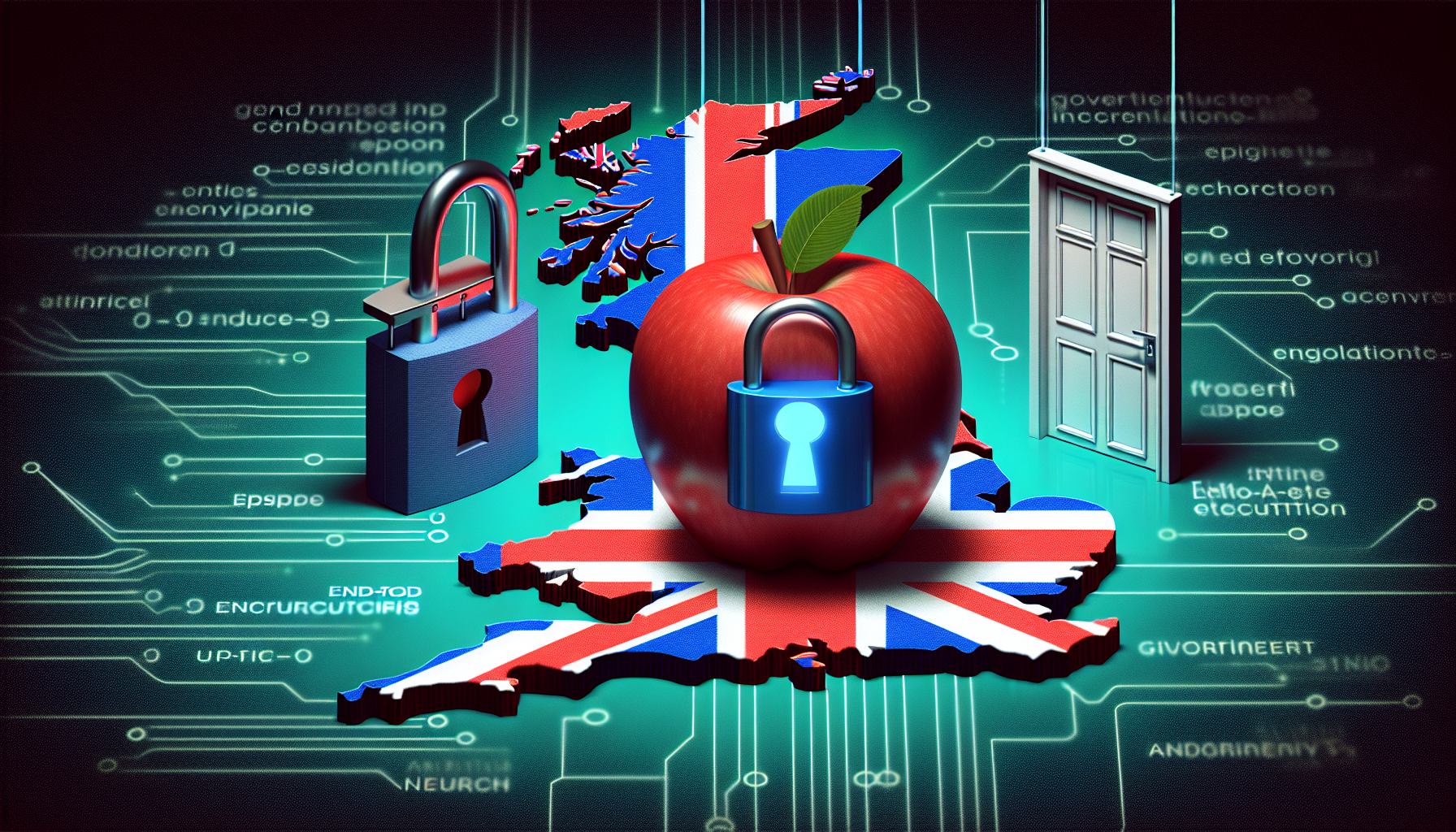
Apple Discontinues End-to-End Encryption in the UK: Implications for Users
Apple has revealed the discontinuation of its Advanced Data Protection (ADP) feature in the United Kingdom, attributing it to adherence to new government regulations. This move has a profound effect on the security of iCloud services, raising worries among users regarding their data privacy. Although Apple stands resolute against government-enforced backdoors, the lack of end-to-end encryption for specific iCloud services prompts significant concerns about digital security within the UK.
What Is End-to-End Encryption and Why Is It Important?
Grasping End-to-End Encryption
End-to-end encryption (E2EE) is a protective measure that guarantees that only the sender and intended recipient of a message or data have the ability to access its contents. Even the service provider—like Apple—cannot decode the information. This standard of encryption is vital for safeguarding sensitive user information from hackers, governmental monitoring, and data breaches.
The Importance of Apple’s Change in Encryption Policy
Apple has consistently branded itself as a frontrunner in digital privacy, stressing its dedication to user protection. The elimination of ADP in the UK signifies that some iCloud services will lack the utmost encryption levels, potentially leaving user data exposed to unauthorized access. This alteration occurs at a moment when cyber threats and data breaches are escalating, underscoring the necessity for robust encryption.
Which iCloud Services Will Be Impacted?
Services That Will Lose Encryption
Effective immediately, a number of iCloud services in the UK will forfeit end-to-end encryption, including:
- iCloud Backup
- iCloud Drive
- Photos
- Notes
- Reminders
- Safari Bookmarks
- Siri Shortcuts
- Voice Memos
- Wallet Passes
- Freeform
In the absence of end-to-end encryption, these services face increased risks of potential data breaches or governmental access requests.
Services That Will Continue to Use Encryption
Notwithstanding the withdrawal of ADP, Apple has assured that certain services will still be safeguarded by end-to-end encryption, including:
- iCloud Keychain (which holds passwords and sensitive login details)
- Health Data
- iMessage and FaceTime (ensuring that private communications stay secure)
This indicates that while some of your most sensitive information continues to be protected, other personal files and backups are now more exposed.
Why Did Apple Opt for This Change?
Adhering to UK Government Regulations
Apple’s choice to disable ADP in the UK is a direct reaction to impending UK government regulations that may compel tech companies to grant access to encrypted data. Instead of creating a backdoor—something Apple has consistently refused to entertain—the company decided to eliminate the feature altogether in the UK.
Apple’s Position on Government Backdoors
Apple firmly maintains that it will never construct a backdoor or master key for any of its products or services. The company has consistently argued that compromising encryption for government access would similarly expose user data to hackers and other nefarious entities.
Implications for UK Apple Users
Heightened Risk of Data Breaches
With the absence of end-to-end encryption, user data stored on iCloud becomes more prone to hacking attempts and unauthorized access. Cybercriminals frequently target cloud storage options, and the lack of robust encryption may render UK users significantly more vulnerable.
Potential Government Access to User Data
The UK government has advocated for increased access to encrypted communications and cloud storage, citing national security concerns. Following the removal of ADP, authorities may find it easier to request and gain access to user data saved in iCloud.
Limited Options for Users Prioritizing Security
For UK users who value data protection, alternative methods may be necessary. This might involve utilizing third-party encrypted storage services or turning to local device storage instead of iCloud for sensitive files.
Will Apple Reintroduce Encryption in the UK?
Apple has conveyed optimism regarding the possibility of reinstating end-to-end encryption in the UK in the future. However, this outcome will likely hinge on shifts in government regulations and ongoing negotiations about digital privacy legislation.
Conclusion
Apple’s move to eliminate end-to-end encryption for certain iCloud services in the UK marks a considerable alteration in its approach to user privacy. While the company remains dedicated to safeguarding user data and resisting government-forced backdoors, UK users now confront heightened risks of data breaches and governmental access. As concerns over digital security continue to mount, users might need to consider alternative strategies to protect their personal information.
Frequently Asked Questions
1. What prompted Apple to remove end-to-end encryption in the UK?
Apple discontinued end-to-end encryption for some iCloud services in the UK to adhere to new government regulations that may require tech companies to allow access to encrypted data. In lieu of introducing a backdoor, Apple opted to disable the feature.
2. Which iCloud services have lost encryption in the UK?
Services such as iCloud Backup, iCloud Drive, Photos, Notes, Reminders, Safari Bookmarks, Siri Shortcuts, Voice Memos, Wallet Passes, and Freeform are no longer secured by end-to-end encryption in the UK.
3. Are my iMessages and FaceTime calls still protected?
Yes, Apple has confirmed that both iMessage and FaceTime will persist in being shielded by end-to-end encryption, ensuring that your private conversations remain secure.
4. Is it now possible for the UK government to access my iCloud data?
With the removal of end-to-end encryption, it’s feasible that the UK government might request access to iCloud data. However, Apple has pledged to continue advocating for user privacy.
5. How can I safeguard my data after the removal of encryption?
Users with privacy concerns can explore third-party encrypted storage services, keep sensitive files saved locally rather than in iCloud, and activate two-factor authentication to enhance security.
6. Will Apple reestablish end-to-end encryption in the UK?
Apple has expressed hope for the eventual restoration of encryption in the UK, but this will depend on legislative changes and ongoing discussions regarding privacy.
7. Does this alteration affect Apple users outside of the UK?
No, this change is specific to Apple users in the UK. Users in other regions will still have access to end-to-end encryption for iCloud services where ADP is available.